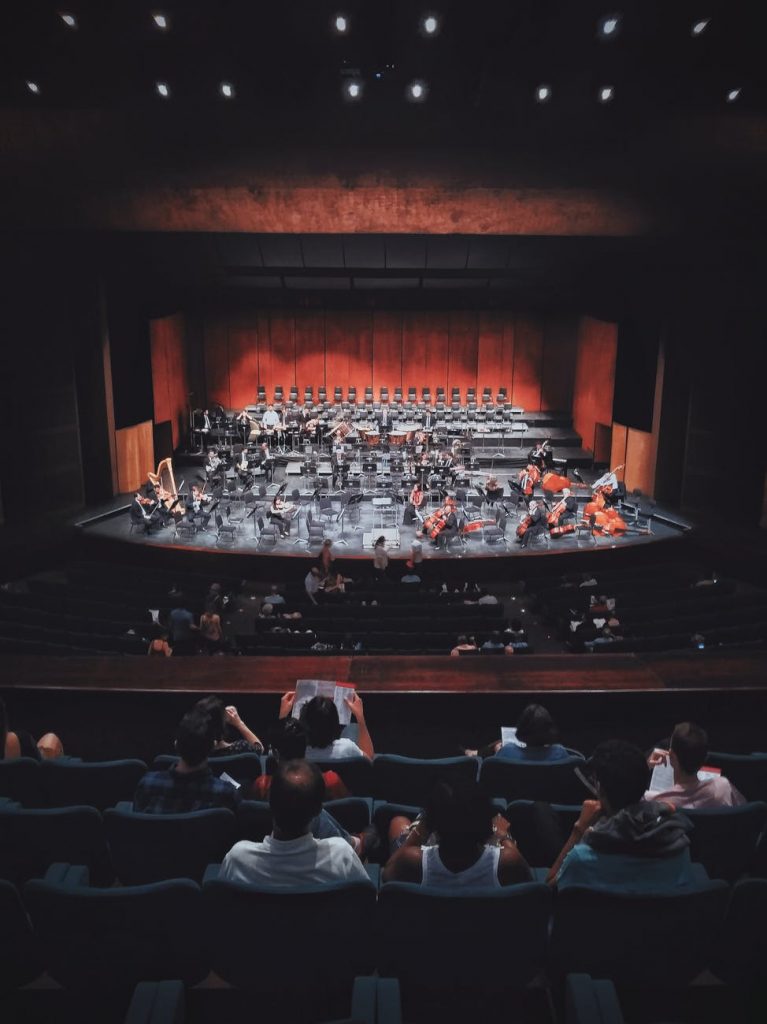As musicians we spend a lot of time practicing and rehearsing with bands and groups to get the notes, rhythms, tuning and ensemble sounding good but is that enough for it to be a good performance? A technically good performance isn’t always good to listen to, anyone who has listened to a Sibelius (not the composer!!) recording will know how bad it sometimes sounds, although all the notes will be technically correct and in the right place. In fairness the creators of Sibelius have tried to introduce a performance button in order to try and counterbalance this problem, but the end result is still limited in what it can do.
So what is it that we, mere human beings who find doing things consistently well a problem (and something that computers are very good at), add to a piece of music that an electronic device can’t match?
The first thing to say is that what we really add are imperfections. Anyone who has listened to a synthesised drum playing every note in time and then listen to a live drummer doing a similar thing will hear the difference. The live player does subtly change things, almost imperceptibly, and everything isn’t quite perfectly in the right place and the beat is not in exactly in the right place, although it is a very small difference. This brings a bit of life to a recording and these subtle changes are what makes a better performance.
When we are looking at playing a piece of music then we need to move ourselves away from the notes to make it come to life. Consider the main theme to Star Wars, a bright brass introduction that creates a sense of excitement. But it can also be played in a smoother, more lyrical way with softer articulation and a quieter sound which produces something completely different in tone. The notes may be equally correct and in time but to make the music relevant to its context it needs to be player louder and brighter with strong articulation, but that doesn’t complete the effect. To do that effectively players need to feel the way it sounds, imagine they are on a spaceship rushing about in space to deal with a galactic emergency and that is then communicated to the audience.
This is what we add as humans, we know how to subtly alter the tempo, style and sound of a piece to produce something special. Listen to any top soloist and try to play along with them and it can be difficult because musical elements, particularly tempos are moved around quite a lot. On a similar note I once conducted a soloist playing “The way we were” and it sounded fantastic and very musically played. If you looked at the score though what was played in the solo part was quite a long way from what was written.

Debussy once famously said that only ten percent of music is written down, and that is the crucial factor here. Playing the right notes in the right place is only 10% of the story, the rest is produced by the player, the subtle nuances that create a feeling and expression in the music. Listen to any good jazz singer and they are probably singing just off the beat which gives it a much more relaxed feel to the music, inflexions and the timbre of the voice or instrument also add to the feel of the music and make it come to life. There is a great recording of “Send in the Clowns” by Judy Dench, and if you listen to it for technical perfection then it will be a disappointment. But listen to it as a performance that communicates the meaning of the words and the music then it is superb and only a quality actor can pull it off. Equally, Ann Hathaway in the film version of “Les Miserables” offers an extraordinary performance of “I dreamed a dream” which brings the words and the music to life in a similar, special way.
So performance is not only about playing the right notes in the right place, it is also about the performer, how well they understand the music and communicate that to their audience. It is what it’s all about.
And that is why music is so special!



